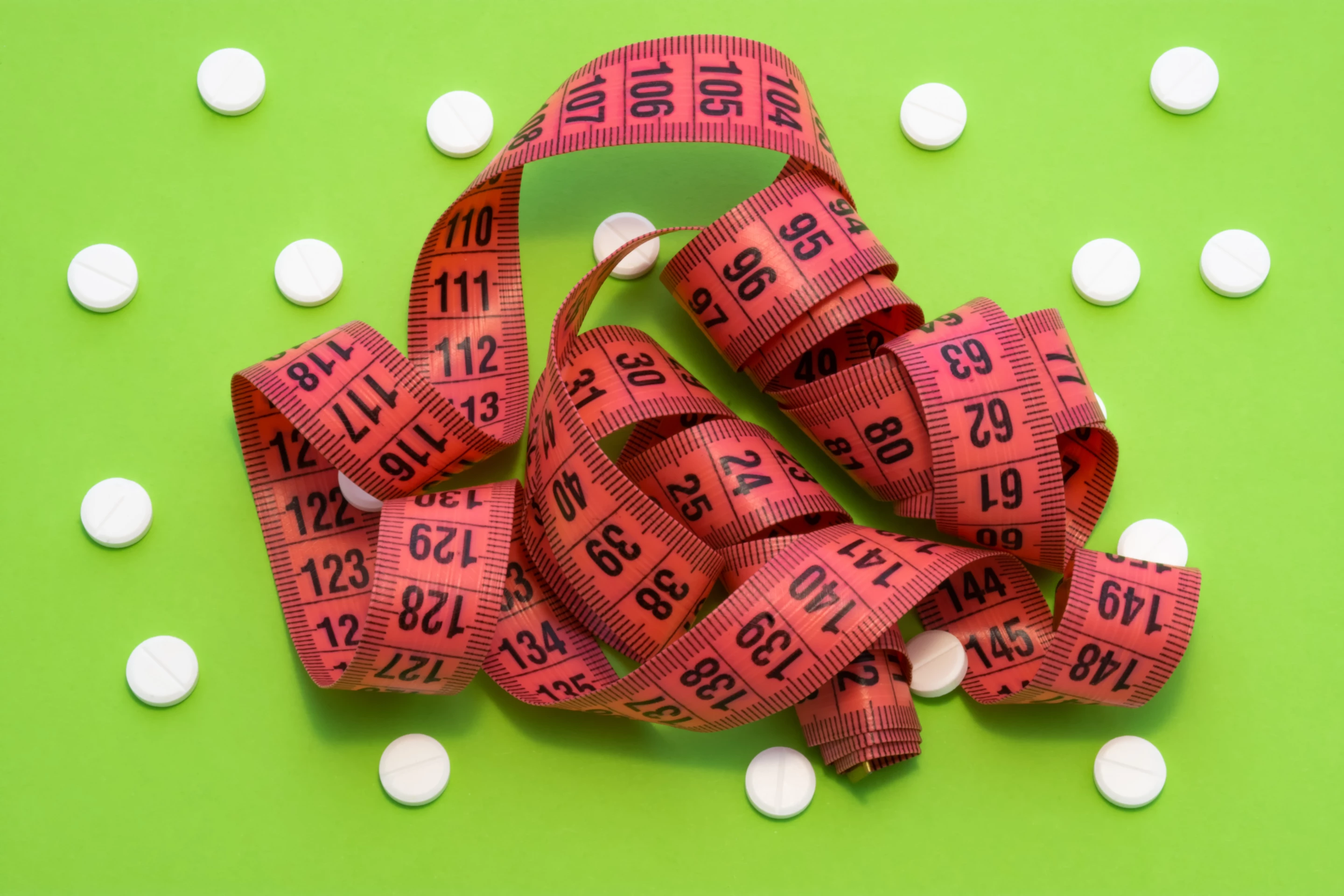This time next year, you may be swapping your GLP-1 injections for easier and as-effective oral weight-loss medication. It's also likely to be cheaper and not suffer the same kind of supply-chain shortages that existing therapeutics have faced. But it's been a dramatic few weeks for the leading three drug-makers vying to usher in this new phase of weight-loss treatment.
It's no surprise that this is one of the most hotly contested therapeutics races of the decade: Last year, the global glucagon-like peptide-1 (GLP-1) receptor agonist market was estimated to be worth US$53.5 million. Some estimates suggest it'll be worth more than $150 billion by 2035.
And while it's only a matter of time until Ozempic-like drugs are available as oral medication, the past few weeks have seem one small victory and a huge setback for some of the big players in the field.
Amid profits updates and shareholder news, Pfizer released a statement titled "Pfizer provides update on oral GLP-1 receptor agonist danuglipron." The company quietly announced that it was ditching its once-daily oral drug due to liver toxicity concerns following analysis of Phase III trial data.
"While the overall frequency of liver enzyme elevations across the over 1,400 participant safety database of danuglipron is in-line with approved agents in the class, a single asymptomatic participant in one of the dose-optimization studies experienced potential drug-induced liver injury which resolved after discontinuation of danuglipron," Pfizer said in the statement.
Little more is known about the specifications of the liver injury, but the participant experienced elevated enzymes in the organ, which is a red flag for cell damage. But we're unlikely to know more until the trial data is "presented at a scientific forum or submitted for publication in a peer-reviewed journal in the future."
“While we are disappointed to discontinue the development of danuglipron, we remain committed to evaluating and advancing promising programs in an effort to bring innovative new medicines to patients," said Chris Boshoff, Chief Scientific Officer and President, Research and Development at Pfizer.
In December 2023, Pfizer scrapped development of a twice-daily danuglipron drug because of adverse side effects that included nearly 50% of participants experiencing vomiting.
However, the ones to watch are Eli Lilly and Novo Nordisk, which now have their own GLP-1 oral drugs nearing the finish line. Just three days after the Pfizer news, Eli Lilly announced positive results from its Phase III trial of weight-loss drug candidate orforglipron.
However, these results are just one part of the Phase III evaluation, with the drug being assessed for bot diabetes and obesity treatment.
"[The trial] ACHIEVE-1 is the first of seven Phase II studies examining the safety and efficacy of orforglipron across people with diabetes and obesity. We are pleased to see that our latest incretin medicine meets our expectations for safety and tolerability, glucose control and weight loss, and we look forward to additional data readouts later this year," said David A. Ricks , Eli Lilly chair and CEO. "As a convenient once-daily pill, orforglipron may provide a new option and, if approved, could be readily manufactured and launched at scale for use by people around the world."
Like danuglipron, orforglipron is a small molecule (non-peptide) oral drug designed to be taken anytime, with or without food. In the results so far, the 40-week trial saw participants with type 2 diabetes lose an average of 16 pounds (7.25 kg), or almost 8% of their body weight. The company is expected to apply for Food and Drug Administration approval this year, with the suite of Phase III results expected by the end of 2025 or early 2026.
Finally, and the most likely company to get the first oral GLP-1 drug to market, Novo Nordisk has had a big win this week, with the US Food and Drug Administration (FDA) accepting its application for review. While it's not a home run yet, the Danish pharmaceutical giant is understandably confident the drug will pass its final hurdle.
"We are entering a new era of obesity care where patients want individualized treatment plans that address their needs and provide choices, including oral formulations," said Anna Windle, Senior Vice President, Clinical Development, Medical & Regulatory Affairs at the company. "Novo Nordisk's strong legacy in obesity care and decades of scientific research and innovation have brought us to this moment. We are pleased that the FDA has accepted our submission and look forward to working with regulatory authorities on what would be the first oral GLP-1 treatment for obesity."
The drug, an oral dose of its Wegovy medication, passed its final safety and efficacy tests in its 64-week OASIS 4 Phase III trial, which involved 307 adults who were overweight or obese and did not have diabetes.
The FDA's decision on oral Wegovy is expected as early as October 2025. Novo Nordisk already has an oral semaglutide drug, Rybelsus, on the market but it's only approved for diabetes management.
Sources: Pfizer, Novo Nordisk via PR Newswire, Eli Lilly





